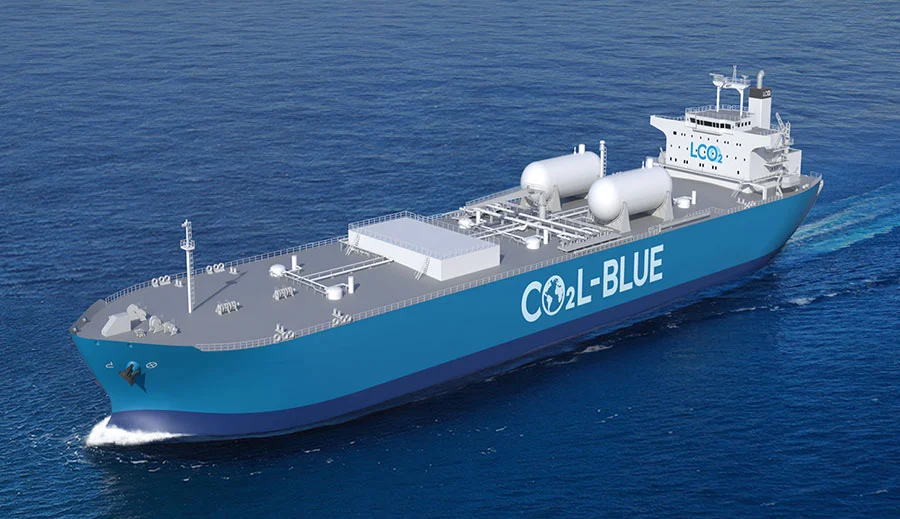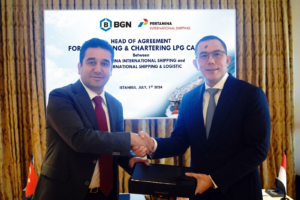
Image credit: MHI Group / Conceptual image of the ocean-going LCO2 carrier
Mitsubishi Shipbuilding, a part of Mitsubishi Heavy Industries (MHI) Group, and Nihon Shipyard, a joint venture for ship design and sales between Imabari Shipbuilding and Japan Marine United Corporation, have started a joint study for the development of an ocean-going liquified CO2 (LCO2) carrier.
Tokyo-based Nihon Shipyard is pursuing this project with the aim of completing construction of the vessel from 2027 onwards.
Demand for LCO2 carriers is expected to grow in the future as a means to transport large volumes of CO2 safely for CCS (Carbon dioxide Capture and Storage) projects, in which captured CO2 is stably stored underground.
Following the lead of the EU region, it is expected that CCS projects in Asia will be accelerated by the promotion of national governments, it will be essential to establish a shipbuilding framework in Japan to meet the demand for LCO2 carriers.
As reported by MHI Group, this project will take advantage of the knowledge and advanced gas handling technology that it has acquired in designing and constructing liquified gas carriers (liquified petroleum gas (LPG) and liquified natural gas (LNG) carriers).
The project will also take advantage of the shipbuilding experience for various type of vessels and advanced technology capabilities that Nihon Shipyard has accumulated over the years.
For its role in this initiative, Mitsubishi Shipbuilding aims to utilize its marine engineering technologies rooted in shipbuilding to contribute to the development of the maritime industry in Japan and in the world. The project of the LCO2 carrier is a part of that effort.
Through collaboration with multiple Japanese shipping companies and domestic/overseas energy companies, along with the construction of demonstration ship for transport of LCO2, Mitsubishi Shipbuilding is actively pursuing the development of LCO2 carriers and commercialization of LCO2 shipping.
Meanwhile, Nihon Shipyard, in anticipation of future regulations restricting CO2 emissions, is proactively working toward the commercialization of LNG and ammonia fueled ships. As its next initiative, the company is considering the potential for LCO2 carriers, aiming to further solidify its position in the industry.


